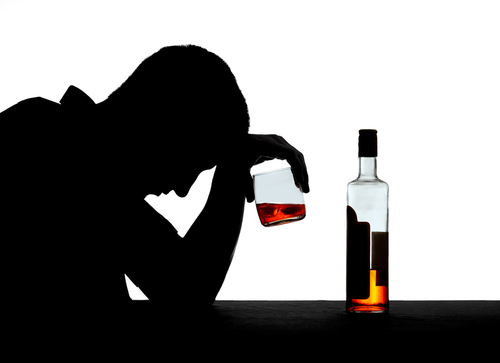
How To Quit Drinking Alcohol
When my clients want to know how to get off alcohol safely I have a series of diagnostic questions that I ask before I decide whether or not I can help them.
Not everybody who wants to quit drinking has a physical dependence on alcohol. On the other hand, if you consider yourself to be an alcoholic then it’s probably a safe bet that you’re drinking every day and that you’re drinking large quantities of alcohol.
Depending on how long you have been doing this, you may need to go through a detox before I work with you. There’s no doubt about it; hypnosis can help you quit drinking forever. However, it will not mask the devastating physiological symptoms caused by alcohol dependence and withdrawal.
What is Alcohol Withdrawal?
Withdrawal from alcohol is the process of cutting back or stopping the use of alcohol. The kinds of symptoms you will experience will depend on your age, your personality type, and how long you have been addicted to alcohol. If you have a physical dependence on alcohol this means that if you don’t drink alcohol, symptoms occur and they go away if you take a drink.
If you’re psychologically addicted to alcohol, you may believe you can’t communicate with people or attend a party without having a drink. Some people can’t even get through a normal day without alcohol, and others who drink more than the norm yet still manage to hold down a job and get by in the modern world may be described as ‘functioning alcoholics’.
Symptoms Of Alcohol Withdrawal
While your body is adjusting to the absence of alcohol, you may experience some or more of these symptoms:
-
- Body tremors;
-
- Insomnia;
- Irritability;
-
- Anxiety;
- Headaches;
-
- Nausea and vomiting;
- Changes in heart rate and blood pressure;
-
- Seizures;
- Feeling clammy or sweaty
It’s impossible to tell how you will react to quitting alcohol or how long the symptoms will last. For this reason it’s best to seek professional help with this process.
For example, if you experience heart problems, breathing difficulties or seizures while detoxing, you want to be sure you have access to medical supervision.
My client John discovered that he was going to need a little extra help when he tried to cut back from 12 beers a day to none. Each week he lasted well until about day 5, then after that time he suffered crippling anxiety, heart palpitations and body twitches.
We agreed that before he did any more hypnosis work with me, he would seek professional help to get through the physiological impact of quitting alcohol. One he did that he was able to stay off the grog for good.
What Help Is Available?
The first step to quitting drinking is to visit your doctor. A medical professional will be able to tell you whether you are physically dependant on alcohol and if so, which option is best for you. The most common options for alcohol detox are:
- Home withdrawal, where you go through detox in your own home, preferably with the support of a family member or close friend.
- Outpatient withdrawal, which involves consultations with a medical professional. This includes ongoing counselling, supervision and support.
If you choose residential withdrawal you’ll spend a week or so in a unit or hospital, where you will be closely monitored by medical staff. If you need to do a physical alcohol detox then it’s best to start your hypnosis program after you have finished the detox.
Once the alcohol is out of your system and you are healthy and stable, a good hypnotherapist can help you stick to your decision to remain alcohol free forever. Get in touch with me if you would like more information on how to stop drinking alcohol safely.



